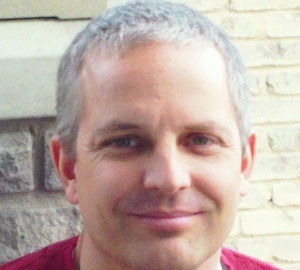No clichés – A reflection on working with the youth of inREACH
Being an avid hockey fan, I await the joys of the upcoming Stanley Cup playoff run. But with this expect many interviews, with standardized questions with the same responses from each player. The questions never change based on a given answer, and the answers never change from game to game, and year to year for that matter. They are all cliché based interviews. How is this relevant to inREACH?
Having been with inREACH, it became quite evident, that the youth we worked with often experienced clichés in their lives. They were labelled, stereotyped, and their behaviours were often predicted by the adult world around them, yet most of the time no one knew anything about them. Outside of where they lived, or who they hung out with, or the school they went to, or perhaps what they look like, do many even know these youth? The label which is the umbrella they live under is their cliché.
While working with inREACH, the approach we used broke down these barriers, the labels, the assumptions. That is what worked. Did we listen to them? No; we heard them. We can use our own clichés about giving hope, opportunity, a chance, but it only works if we know what to give. That was done by hearing their story. Their story does not have to be a given. It is not just about where they have come from, and what they are going through, it is also about where they want to go. If we hear them, we can help them. inREACH worked because no assumptions were made. Each youth had their own “Stanley Cup” they wanted to lift, but the battle to get there was the unknown. After each session or meeting with a youth, there were no cliché answers or questions. There was the concept of acknowledgement of ability, an identification of assets, and no reason to suggest why that youth could not raise that cup, whatever that cup was from him or her.
There was a time where we were asked to do a presentation on working with high risk youth on behalf of a community agency, and the reason for such information was the staff was stressed due to not feeling successful in working with this population. Initial feedback as to why the training was needed was the youth do not listen; they are always angry, disrespectful etc. Perhaps part of the issue is as adults, we make assumptions of where these youth have come from. This was a huge learning curve I believe many of us have yet to master.
Recently I watched the film “Short Term 12”, about youth in a group home, and a new staff member in the film was asked to say a few words to introduce himself to the group. His response was: “I always wanted to work with under privileged youth”. That comment didn’t go over very well. My first reaction was shock really, as the moment the categorization of ‘under privileged’ was used, any potential trust is already gone (as the youth were not too happy). The scene reminds me so much of what inREACH was about. Youth are…really….just youth. No adjective required. And really, I do think that is what is being missed. That point was driven home while with inREACH.
Often, we as adults rely on labels, as they are easy to work with clichés that fit into a nice little box for the ease of comfort.
In my continued work, I think it is of the upmost importance to truly find out what the youth needs, or wants, and feels. To reflect on what the youths’ words are, shows they have been respected, and valued, and heard. That is the start of their quest for their Stanley Cup.
Moving forward, what is my message? I won’t give any clichés here that you will assume I should be making now. What I will say, is do you know the path I took as a youth to get to where I am right now (working in social services for 14 years)? I will bet most likely not. I was a youth. We all were. That is the cliché I will end off on!
 Author: Karl Garner I was a Case Manager at inREACH a focus on employment for the youth. I am currently working at John Howard Society with the Youth in Transition Program, a program for Crown Wards. And want to know a fun fact…? I still play my major passion every week…HOCKEY!
Author: Karl Garner I was a Case Manager at inREACH a focus on employment for the youth. I am currently working at John Howard Society with the Youth in Transition Program, a program for Crown Wards. And want to know a fun fact…? I still play my major passion every week…HOCKEY!
